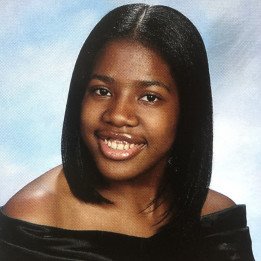
Watching parents go to jail, overcoming cancer, getting lost in Beijing, forging signatures for insurance… what do these things have in common? They all made for great personal statements and the authors were accepted to top schools. But the overwhelming majority of high school students don’t have life-changing events they can discuss in their college application essays. What do they write about? How do they nail the personal statement? Here are five tips to tackle the essay like a champ!
1. Write about something that actually matters to you.
When it comes to writing, there’s nothing worse than trying to dredge up enthusiasm for a topic that you really couldn’t care less about. This applies to any kind of writing, but it’s especially true when the topic in question relates to your personal life. We all want to distinguish ourselves somehow from the teeming, faceless mass of college applicants that admissions committees have to sift through each cycle, so it’s tempting to immediately go for the most attention-grabbing topic we can think of. But no matter how good your volunteer/internship/work/etc. experience looks on a resume, it’s not going to make a compelling essay if you don’t actually care about it. Your lack of passion is going to show. It’s better to write about something that’s important to you, like your skateboarding hobby, even if you think it’s not as “impressive” as other things you’ve done.
2. Be honest.
This one should be common sense, but it’s worth repeating because it’s an important point: there’s really no reason you should be fabricating a false life story to write about in your personal statement. College admissions committees aren’t just looking to accept the best or most qualified applicants—they also want to find the ones who’ll be the best fit for their school. That’s why things like the personal statement exist in the first place. Colleges want to get a better idea of who you are as a person so they can envision what you would add to the character, not just the accomplishments, of the general student body. Lying in your essay defeats the entire point of writing it in the first place. It’s also just a lot easier to write a personal statement based on truth—you don’t have to worry about keeping your story straight and constantly making up details as you go.
3. Make sure you have a point.
An important caveat is that the first two tips are necessary but insufficient conditions for writing a good personal statement. I could write honestly about my first time winning a debate tournament, which is certainly something that matters to me, but it’s not going to be a good essay if it just describes my experience and does nothing else. In choosing a topic, you have to ask yourself “Why does this matter? What message am I trying to get across?” Maybe I did badly at a dozen tournaments before finally winning one due to my perseverance and hard work, or I overcame some serious personal obstacles to pursue my love of debate. Those would be meaningful narratives that reveal important aspects of my character. Just saying “I won a tournament and it made me happy” doesn’t accomplish this. Simply put, your story needs a moral. You should keep this moral in mind while writing your personal statement and make sure everything you say ties back to that overarching theme.

4. There’s no such thing as too much proofreading.
No, really. There isn’t. Even if you’ve proofread and edited (or even rewritten) your personal statement three times and you’re getting sick of the sight of it, chances are there’s still some things you could change to make it better. This is something that you’ll be sending to every college you apply to, so you want to make sure you have the best possible version of it. At this point in the essay-writing process, it’s helpful to get a second opinion, preferably from someone who knows you well. As the writer of your essay, your perspective will be somewhat skewed when editing because you know what you intended to say. Someone from the outside will be able to tell you if your thoughts don’t come across as clearly as you wanted them to, or they might just spot things that you missed.
5. Take advantage of your resources.
No matter how difficult or irritating writing the personal statement might be at times, remember that you’re not in this alone! There are hundreds of thousands of people who are undergoing or have already undergone the same thing. If you’re stuck, you can turn to the internet for a virtual treasure trove of advice not only from current and former college students, but from professional admissions counselors as well. These kinds of articles or advice columns (like this one!) are completely free, so you should take full advantage of them. Another resource students tend to underutilize is their teachers. Having seen hundreds of students go through this process before, they more than likely have a few insights that could help you along. Even better, some of them would be happy to proofread your essay and give you advice. Just make sure you get to them early, before the rush for recommendation letters starts. If you don’t have teachers to edit, you can always talk to student mentors here on AdmitSee.
If you’re stuck on how to start your essay, you can read thousands of essay introductions. If you’re a college student, make sure to sign up now to earn money by uploading your college application materials, and automatically be entered to win the AdmitSee scholarship! If you’re applying to college, check out the various profile packages of admitted students, or search by school to find your dream school.















 Back
Back